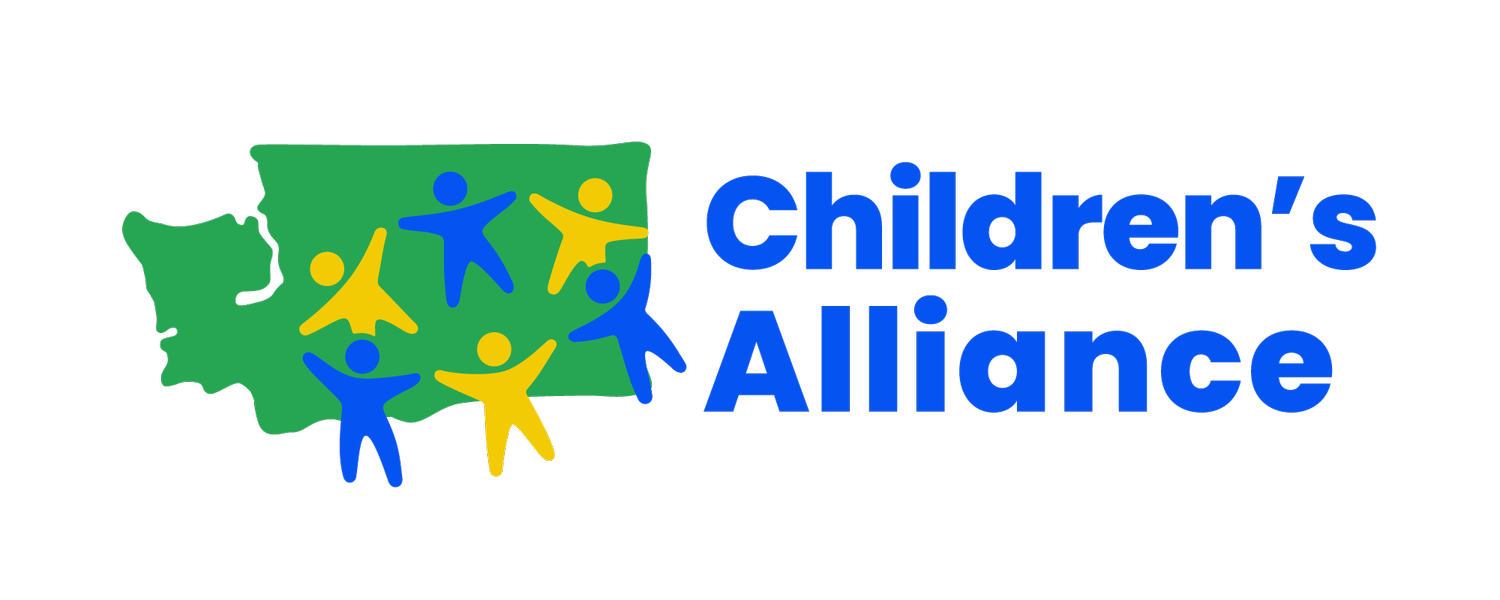POLICY CHOICES CAN BUILD A STRONG FOUNDATION FOR THE LIFELONG HEALTH OF KIDS
New KIDS COUNT brief highlights benefits of social and economic programs on children’s health beyond the pandemic
By Tracy Yeung - November 18, 2021 | Cross-posted from Washington Budget and Policy Center
Every child deserves a fair shot at a healthy future but today, not every kid gets that chance. Today’s unequal playing field makes it harder for kids from some families to thrive both economically and in terms of their well-being. Research shows that targeted investments that support families and kids can give the next generation the strong foundation it needs, and our state has made some progress. But policymakers can do much more to ensure every Washingtonian child is on an upward trajectory.
In the 2021 legislative session, state lawmakers took bold action to protect Washington’s kids and families from the impacts of COVID-19 and lay the groundwork for their long-term health. However, almost two years after its onset, the COVID-19 pandemic and the associated economic fallout continue to touch nearly every aspect of our lives. Policymakers need to build on the success of the last legislative session and make further investments to support the health and well-being of kids and families not only during the current public health problem, but for the rest of their lives.
In our new KIDS COUNT brief, “Smart investments can improve long-term health of Washington kids,” we call on state and federal lawmakers to prioritize health equity when enacting budgets and policies to promote the lifelong health of all children in Washington.
Our health is determined not only by our genes and individual health choices, but also by the environment in which we are born, live, learn, and play. These factors are collectively known as the “social determinants of health.” A child’s physical environment, access to quality education and health care, socioeconomic status, and their family and community shape their likelihood of having clean air to breathe, a job with a living wage and benefits, money to pay for nutritious food, and someone to lean on for their emotional and mental well-being. Researchers have found that social determinants of health account for fully 70% of our health.
The social determinants of health have a big effect on Washingtonians’ well-being and are shaped in part by policy decisions. State and federal lawmakers have a responsibility to consider the impact that policy decisions about the distribution of resources will have on our state’s public health. According to the World Health Organization, the unequal distribution of power, money, and resources are responsible for the health inequities we see.
The COVID-19 pandemic has worsened existing health inequities, including among children. In addition to the increase in the number of children hospitalized with COVID-19, kids are shouldering immense stress and hardship associated with the crisis. And this is all on top of the challenges and barriers caused by long-standing racist policies and practices that prevent some children from the opportunities they deserve. Recent data from the U.S. Census Bureau and other studies show that children – especially those in Black, Latinx, and other families of color – have experienced worsened mental health, food insecurity, housing instability, lack of health care, and lack of digital access for remote learning.
Investing in food and housing assistance, health care, education, and cash assistance will improve the health of all people but is particularly important for children who are still growing and need more support and stability to facilitate their development. A recent national study of state spending from 2010 to 2017 found that greater spending on these sorts of programs is associated with reduced child abuse and fatality. These findings reveal the significant benefit these programs have on children’s well-being. Elected officials at the state and federal level must support and strengthen these programs to lay a solid foundation for long-lasting health for all kids in Washington.
Read the full KIDS COUNT brief here.
About KIDS COUNT in Washington
KIDS COUNT in Washington is a partnership of the Children’s Alliance and the Washington State Budget & Policy Center, made possible by support from the Annie E. Casey Foundation. It pursues measurable improvements in child outcomes through equitable public policy measures. For more information, visit www.kidscountwa.org.
About Tracy Yeung, State Policy Fellow
Tracy is the State Policy Fellow through the Center on Budget and Policy Priorities’ two-year national fellowship program. She will focus on population health in Washington state. She was previously the 2020-2021 Betty Jane Narver Policy Fellow at the Budget & Policy Center. Tracy has also worked at the Chinese Information Service Center as a family caregiver support specialist and later as an in-home care case manager, mainly serving low-income, limited-English speaking, and elderly families.
